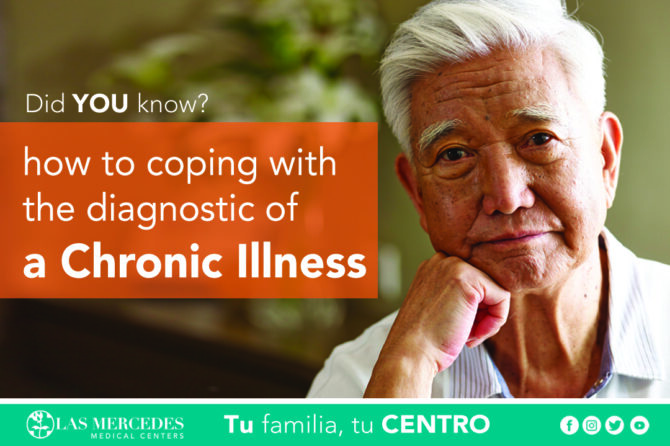
Coping With A Diagnosis Of Chronic Illness
Being diagnosed with a chronic illness such as diabetes, cancer, or arthritis can come as a blow. It’s normal to experience a range of emotions in the wake of such a diagnosis.
Being diagnosed with a chronic illness such as diabetes, cancer, or arthritis can come as a blow. It’s normal to experience a range of emotions in the wake of such a diagnosis. However, you can learn to manage these feelings to live a fulfilling life.
Emotional roller coaster
Distress is common following a chronic disease diagnosis. Research indicates that people who are experiencing a number of stressful life events before diagnosis, and those with a history of depression, may be at particular risk of psychological distress when they learn they have a chronic illness. However, even people with relatively few stresses in life can be shaken by a chronic disease diagnosis.
Digesting news of your disease can bring a flood of emotions. A diagnosis of diabetes, for example, is often associated with feelings of guilt and shame. Grief is another common reaction to chronic illness. You may experience various stages of grief including denial, bargaining, anger, and sadness.
You may feel you’re on a roller coaster of emotion—accepting one day and angry the next. It may help to remind yourself that these feelings are normal, and will likely ease with time.
Coping strategies
Some days you may be tempted to pretend you never received your diagnosis. However, facing your diagnosis head on is the best way to cope.
This was evident in a study of women with breast cancer, which found women who felt resigned to their fate were psychologically less well adjusted three years later, compared to women who actively confronted their diagnosis.
Another study, also of women with breast cancer, found those who sought social support and used active coping strategies—such as developing a plan of action—reported more inner peace and satisfaction with life two years later, compared to women who tended to deny or avoid their diagnosis.
How can you actively face your illness? A good place to start is by writing down all of your questions and taking them to your physician to discuss. Ask your doctor what specific steps you can take to optimize your health. Accurate knowledge can help you feel empowered.
Also try to manage the elements in your life that are within your control. You may not be able to control certain aspects of your disease, but you can choose to eat healthy meals, take medications as prescribed, and spend less time with people who aren’t supportive.
Finding support
Minimize stress by letting go of unnecessary obligations. You may be able to take time off from volunteer commitments, for instance, or ask for more help from family and friends. Build a strong support network you can rely on, and communicate with them about how they can best help you manage your disease.
Illness can be stressful for an entire family. It’s not unusual for couples to experience strain on their relationship. Try to see things from the other’s perspective and keep the lines of communication open. If you have children, plan for some alone time with your partner. Also encourage your partner to make time to care for himself or herself, especially if he or she is your primary caregiver.
Facing a life-threatening diagnosis
Being diagnosed with a life-threatening or terminal disease is likely to trigger feelings of fear and grief. More than ever, it is important to surround yourself with positive and supportive people. Try to find small things that you can enjoy every day, and set realistic short-term goals for yourself. Even small goals such as a visit to a park or museum, or a phone call with a close friend, can help you make the most of each day.
Seeking help
As you navigate the emotions of a new medical diagnosis, psychologists can help. If you’d like professional help coming to terms with your diagnosis and managing your disease, use APA’s Psychologist Locator to find a psychologist in your area.
From: www.apa.org
Leave a reply


Amazing piece of content. Thanks for sharing.
ReplyIt’s good to know that you should ask a physician what steps you need to take. My brother got diagnosed with a chronic illness a couple of weeks ago, and he talked about how he has been struggling with the diagnosis. I’ll pass this information along to him so that he can find a physician that can help him with chronic illness management.
ReplyFeel liberated and assured after reading your blog.
ReplyI never took into account the fact that people start to develop depression when they have been diagnosed with a chronic illness. I plan to get myself checked at a medical center this weekend, because I have been having issues with my reproductive system. Whatever happens, I hope that I will still have a positive outlook in life, especially when I need to be strong for my kids.
ReplyI love that you point out that getting diagnosed with a chronic illness can be an emotional roller coaster for everyone involved. My nephew was just recently diagnosed with diabetes and we’re trying to find ways to teach him about what he has. My sister and I have been looking into finding a kid-friendly learning website we can use to help us teach him.
Reply